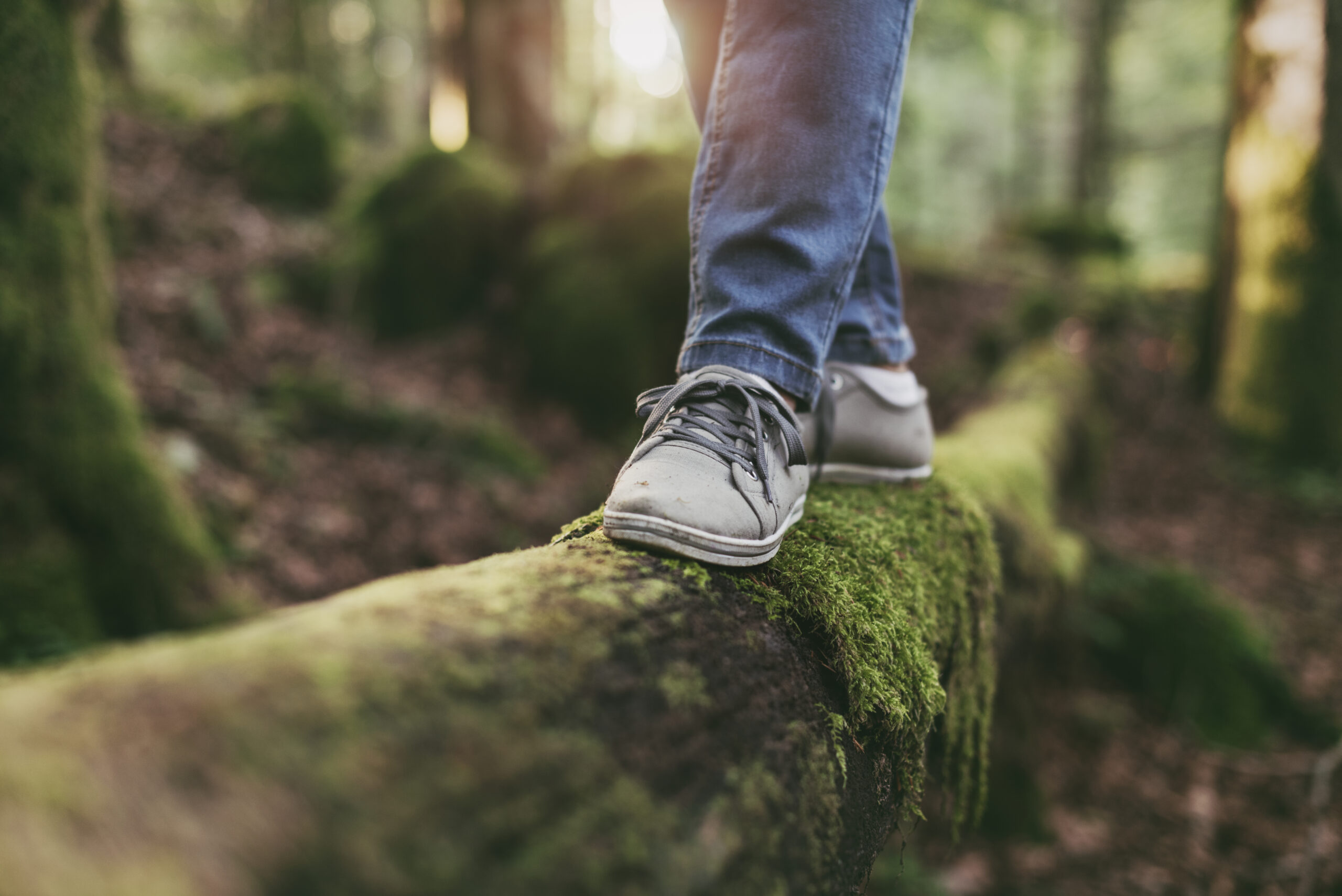The (Stress Busting, Mood Lifting, Immune Boosting) Power of Walking in Nature

Walking, as you may know, is one of the most beneficial activities you can do for your overall health and wellbeing. That is, aside from walking in nature – our happy place. A growing body of research shows that we, as humans, are innately more at ease surrounded by nature.
Just being in green spaces has shown to lower stress, heart rate, and blood pressure, while boosting the immune system and buoying mood. Meanwhile walking is a great form of physical exercise shown to improve fitness, cardiovascular health, bone density, and circulation, as well as increase endorphins, alleviate fatigue, and combat depression.
Together, walking in nature, positively impacts your mental state, physical health, and emotional wellbeing in some pretty powerful ways. Plus, you’re more likely to stay moving longer outside.
Walking in nature calms you down.
Going for a walk in the park can actually help ease stress and anxiety. Science shows that spending time in nature stimulates the parasympathetic nervous system, which is responsible for involuntary activities, such as digestion and glandular secretion, when the body is at rest. It’s also responsible for regulating the body’s physiological response to stress, lowering heart rate, and blood pressure.
According to a recent study, spending as little as 20 minutes in a natural environment is enough time to significantly lower cortisol levels (your body’s main stress hormone). Spend a little long, 20-30 minutes, and the benefits only increase. Beyond that cortisol levels continue to drop but at a reduced rate. [1] Meanwhile, researchers in a different study found that spending 20 minutes in a park improves wellbeing. [2]
All of the evidence suggests that just a small amount of time in nature goes a long way. In fact, new research published in Frontiers in Psychology found that as little as 10 minutes in a park environment effectively improves mood and focus, while lowering feelings (and the physical effects) of stress in college students. [3]
Walking in nature clears your head.
Have you ever noticed that you can think better, more clearly, after a hike or long walk in nature?
Research shows that going for a 90-minute walk in natural surroundings meaningfully reduces the prevalence of negative thinking and rumination, or brooding. Walking in nature physically changes the blood flow in the brain in ways that promote better mental health.
Brooding is a mental state that keeps you trapped in a vicious cycle of destructive self-reflection – obsessively mulling over the negative aspects of yourself and your life. It’s an unhelpful form of rumination that only impairs problem-solving, ramps up distressful feelings, and increases the likelihood for depression.
A recent study at Stanford University found that participants who walked through a park-like setting on campus were not only happier, less likely to dwell on their problems, they also had less blood flow and activity in the brain region linked to depression (subgenual prefrontal cortex), compared to participants who walked for the same length of time in an urban setting. [4]
Walking in nature replenishes your energy.
Nature has a way of slowing your mind down. Less stressed, you become more present, taking in the many sights, sounds, and smells in the natural world around you. This form of undirected attention has rejuvenating effects on the brain, helping restore brain function. Mounting evidence shows that walking in nature improves cognition, focus, and memory.
It also replenishes your energy levels, and in the process, lightens your mood. A series of studies published in The Journal of Environmental Psychology revealed that a 20-minute nature break significantly boosts feelings of vitality. [5] And, a review of research found that people who exercise outdoors in a natural environment reported feeling more revived, energized, and engaged; as well as less tense, confused, angry and depressed. [6]
Walking in nature supports your immune health.
According to data collected from over 140 studies involving 290 million people worldwide, exposure to nature is associated with a long list of health benefits that support longevity. The report revealed that living near or having access to green spaces reduces the risk of depression, obesity, heart disease, type II diabetes, high blood pressure, preterm birth, and premature death. [7]
Researchers believe that the increased health benefits nature provides closely correlates to the proven immune-boosting effects of green spaces. So much so that experts in the medical community, like Dr. Robert Zarr in Washington D.C., are beginning to write “nature prescriptions” – advising their patients to spend more time outdoors.
In Japan, where “forest bathing” is already a popular preventative medicine, scientists discovered that breathing in phytoncides (chemicals released by trees and plants) strengthens the immune system, among other therapeutic benefits. Dr. Li’s research at Nippon Medical School found that inhaling phytoncides increases the number of natural killer (NK) cells, a type of white blood cells associated with a lower risk of cancer, in the bloodstream. [8]
Challenge yourself to walk outdoors more often.
Now that you know all of the powerfully positive effects walking in nature has on your mind, body, and spirit, it’s time to head outdoors. If you don’t happen to live near nature, or on a tree-lined street, then head to your closest neighborhood park for a stroll. Walk at your own pace, but leave your devices at home – the key is to immerse yourself in your surroundings.
Challenge yourself to walk for 10 to 15 minutes outdoors every day for the next two weeks. Experts also warn not to let the cold keep you indoors (we could all use a little mood boost in the winter months). Layer up, put on your scarf, hat and gloves, and get outside for a walk while the sun’s still high in the sky. Chances are you’ll feel and sleep better having moved your body in the fresh air.
Read More:

Meagan McCrary
Meagan McCrary is an experienced yoga teacher, freelance writer, and author of “Pick Your Yoga Practice: Exploring and Understanding Different Styles of Yoga”. Her writings, covering a variety of health, fitness, and lifestyle topics, have appeared in Yoga Journal, 24Life Magazine, Mind Body Green, Sweat Equity Magazine, The Chalkboard, and YogaUOnline (among others). Meagan’s passion is helping people find more ease, comfort, and functionality in their bodies through a variety of modalities; and currently works with a diversity of clients in Southern California, specializing in chronic pain relief, soft-tissue release, postural awareness, pelvic strength, and stability, and prenatal yoga and fitness.





